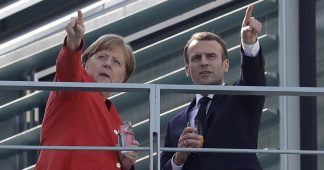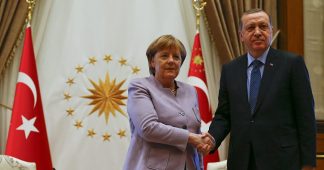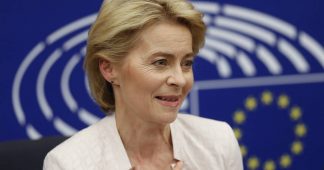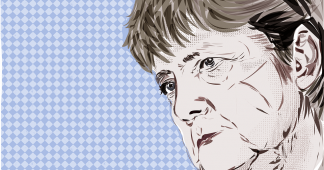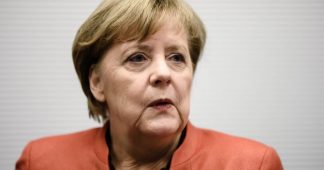In his book “Machtverfall” (“Power Decay”), German journalist Robin Alexander describes the end of the Merkel era in Berlin. It reads like a thriller – and does not bode well for the time after the Bundestag elections. But what does this mean for Brussels and the EU?
The famous Netflix series “House of Cards” has brought home to us the nihilism and mendacity of US politics. In Europe something like this would be unthinkable, we thought until now.
But we were wrong. The book “Machtverfall” shows that German politics also resembles a house of cards. Of all people, the “most powerful politician in the West” – Chancellor Angela Merkel – has played out.
The “Welt” journalist Robin Alexander tells the story of her inglorious departure like a thriller. At the beginning Merkel is still the “saviour of the free West”, her historic mission is given to her by US President Obama himself.
In the end, she is no longer even willing or able to save her own party – the CDU. The attempt to arrange her succession (with Kramp-Karrenbauer) has failed, the Söders, Laschets, Merzen and Spahns will do the rest.
Alexander knows not only the names, but also the secret places and the rotten tricks Merkel and her “party friends” use to finish each other off. He works like a detective in search of clues – and convicts almost all of them as guilty culprits.
I was particularly interested in the passages on European policy. Alexander has a few weaknesses typical of Berlin – for example, when he describes the struggle for the new EU Commission as if Merkel had won (and omits Macron’s role).
The portrayal of Merkel as a successful “crisis manager” also falls short. The chancellor has unnecessarily prolonged almost all crises in the EU, and in some cases – such as the debt crisis surrounding Greece in 2015 – even provoked them herself.
Here, Alexander fits into the all-too-comfortable German narrative that Germany and its chancellor have the role of “saving” the EU and keeping things together. Most recently, former Commission President Juncker dismantled this myth.
Elsewhere, however, Alexander is also very tough on Merkel and her party colleague von der Leyen. Thus, the German-European vaccination debacle becomes a portent:
“The EU’s botched vaccination start is a turning point in the pandemic. It has caused historic damage to the community of states – and this in a phase in which Ursula von der Leyen, a German, heads the EU Commission and Angela Merkel, the German chancellor, is president of the EU Council. It has the potential to darken Merkel’s image in the history books. And to decide the federal election.”
Source: Machtverfall, p. 295
That the vaccination debacle will decide the Bundestag election seems a bit far-fetched after all. For Merkel, von der Leyen & Co. are doing everything they can to present the debacle as a brilliant success. And the election campaign revolves around completely different issues.
Moreover, Alexander leaves one crucial question unanswered: What does the “decline in power” actually mean for Germany and the EU? Are we dealing with a simple policy failure – or a systemic crisis?
After the vaccination debacle, there was also the flood disaster and the Afghanistan disaster. This makes many people doubt politics. And I can think of even more questions.
A power vacuum in Brussels?
Could Merkel’s departure also weaken von der Leyen – and strengthen Macron, as “Der Spiegel” believes? Or is now the hour of the “Frugal four” and other EU groups who have long been at odds with the Franco-German “leadership”?
Will the decline of the German Christian Democrats, which Alexander describes with such relish and detail, ultimately lead to a power vacuum in the EU, which for decades was dominated by the CDU, CSU and EPP? – Questions upon questions.
What is clear is that Merkel’s loss of power has already made itself felt in Brussels. But what will happen in EUropa without the chancellor will only become clear after the Bundestag elections. It will be the most important European election for many years…
Translated with www.DeepL.com/Translator (free version) The original post (in German) is here
Published at lostineu.eu
We remind our readers that publication of articles on our site does not mean that we agree with what is written. Our policy is to publish anything which we consider of interest, so as to assist our readers in forming their opinions. Sometimes we even publish articles with which we totally disagree, since we believe it is important for our readers to be informed on as wide a spectrum of views as possible.
